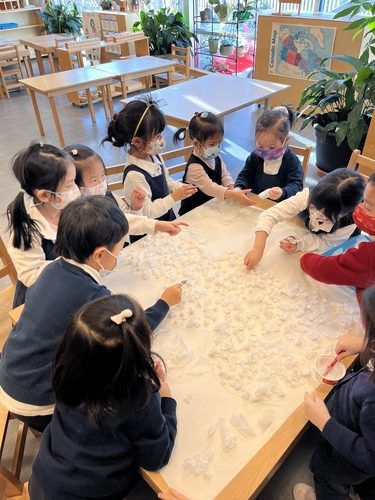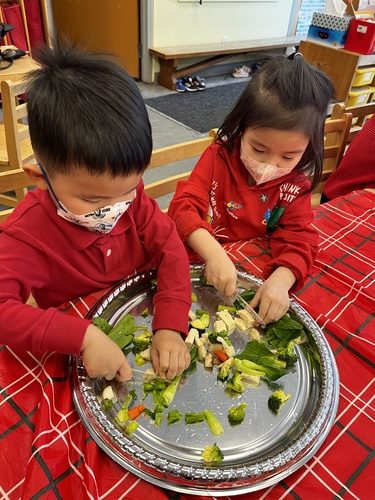





Our Philosophy
Our program at Forget-Me-Not Montessori School is based on the philosophy and methods of Dr. Maria Montessori. Our goal is to educate children to their fullest potential, instill a deep sense of personal independence and social responsibility. We have enriched our program by incorporating Early Childhood Education philosophies to bring the best of both worlds together. We believe that each child is a unique individual and that children can develop to their full potential in a high quality setting. We believe that a high quality setting values and nurtures all areas of a child’s development- the social, emotional, cognitive, spiritual and physical.


Our Beliefs
We believe that a high quality setting values principles of diversity and is accepting, respectful and welcoming to all people. We believe that a relationship with all the partners in a high quality setting: the staff, families and children should reflect principles of respect, trust and fairness. We believe that a high quality setting includes:
● Well trained, warm, nurturing and caring staff whose experience and commitment are valued
● A rich and stimulating environment which can respond and adapt to the needs of individual children
● A predictable yet flexible daily routine that offers children the security of a stable framework for their day
● Ongoing communication between families and staff as part of an open, supportive relationship and commitment to work in partnership
Montessori Learning

Practical life
Practical life activities are simple, everyday tasks that play a crucial role in a child's development. These activities, such as carrying items, pouring liquids, polishing shoes, tying shoelaces, and sorting , help children learn essential skills. By practicing these tasks, children improve their coordination, gain confidence in their abilities, and develop a sense of independence. These activities not only teach children how to manage daily life but also prepare them for the responsibilities they will encounter as adults.

Sensorial
Our learning experiences are shaped by our senses, and sensorial materials are key in helping children develop and hone these senses. These materials offer a way for children to explore and understand various attributes such as color, weight, shape, size, texture, sound, and smell. Through interacting with these materials, children
practice comparing, contrasting, reasoning, classifying, and categorizing different physical properties, which lays a strong foundation for both physical and cognitive learning.

Language
The Montessori Language program offers diverse activities to boost children’s language skills, vision, hearing, speech, and fine motor abilities. Through phonetic exercises, children learn letter shapes and sounds, practice writing, match words with images, and explore grammar concepts. Starting with sandpaper letters for sound introduction, progressing to blending sounds with the Moveable Alphabet, and refining writing with metal insets, these activities foster reading, writing, and overall language development.

Mathematic
In the Math area, hands-on materials help children grasp mathematical concepts clearly and simply. They start with basic tasks and progress to more complex ones, with each activity building on the previous one. This step-by-step approach leads children from concrete experiences to more abstract numeration, deepening their understanding of mathematical principles.

Cultural
The Montessori method encourages children to explore their surroundings and develop a true curiosity about their world. Cultural subjects such as Geography, Foreign Languages, Science, Botany, Zoology, Art, and Music help children learn about both their own culture and others. By studying these areas, children gain an appreciation for cultural diversity, enhance their understanding of different peoples, and deepen their literary grasp of language.
